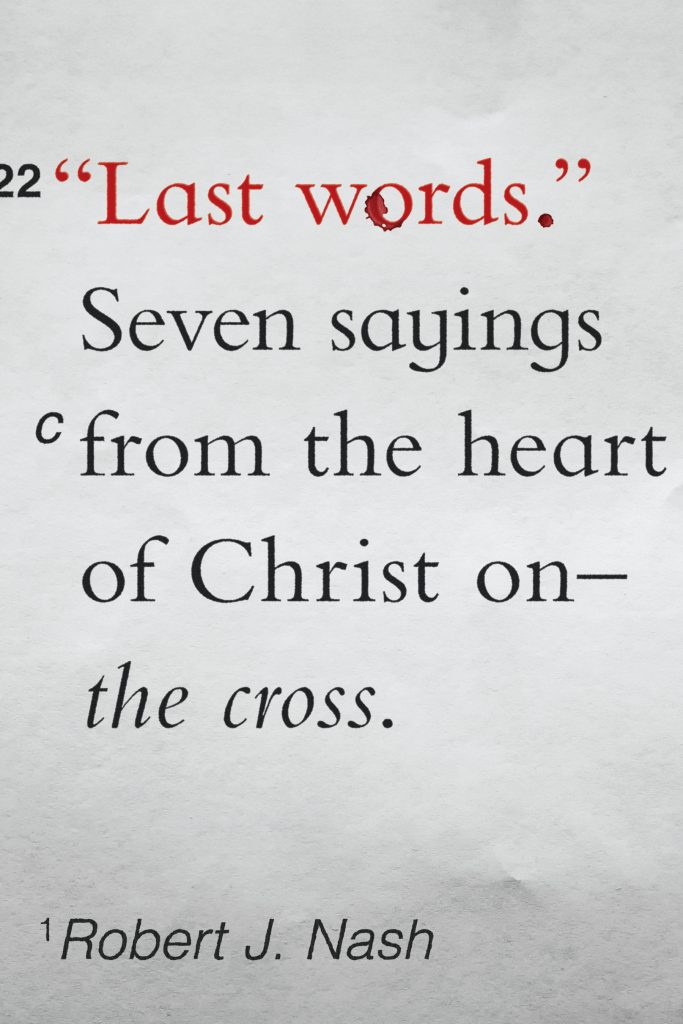I love to run. It has a quiet simplicity: just me and the pavement—pounding the ground, step after step, watching deer bound into the forest, Venus shining in the night, crisp air filling my lungs, and crunching leaves underfoot. Nothing vies for my attention. The Earth spins at 1,000 miles per hour, but life slows down mile after mile when I run. Running dampens the hectic buzz of the schedule.
As a pastor of a multisite church and a parent of six children who are engaged in varied sports and activities, family dinners are often on the go. The pace of life has shifted into relentless overdrive. Amidst the frenzy, running is a sanctuary—a time to set everything aside and unwind. But unwinding is not the only reason I lace up my shoes and head out the door; an hour of exercise gives me an hour to pray.
How did it happen that running became a time to pray?
Many years ago, on a mission trip to London, the team “camped out” in a small church. During personal devotions, one day, I picked up Dick Eastman’s The Hour That Changes the World: A Practical Plan for Personal Prayer. In this book, Eastman breaks down one hour of prayer into twelve five-minute segments—like a clock.
Here are the segments:

- Praise
- Waiting on God
- Confession
- Praying Scripture
- Watching
- Intercession
- Petition
- Thanksgiving
- Singing
- Meditation
- Listening
- Praise
As I run, I pray through these twelve segments. This same method could work for you as you walk, cycle, do gardening, or have quiet time—a personal retreat or even a commute to work. Just set a timer for five minutes and move from one prayer segment to the next during the hour.
Some segments are self-explanatory—praise, confession, praying Scripture, thanksgiving, and singing, to name a few; but other segments may need explanation.
- Waiting is the quieting of one’s heart. Psalm 46:10: “Be still, and know that I am God. I will be exalted among the nations, I will be exalted in the earth!” (Psalm 46:10, ESV).
- Watching is letting God lead you to pray for whatever comes to mind. Colossians 4:2 states, “Continue steadfastly in prayer, being watchful in it with thanksgiving.” It unloads the mind of all the burdens a person carries with them.
- Intercession and petition sound similar. Intercession is for the world. It is thinking globally: praying for missionaries, world leaders, and the news. Petitioning is for personal needs. It is praying for local concerns.
- Meditation focuses on God and his Word. God said to Joshua thousands of years ago,
This Book of the Law shall not depart from your mouth, but you shall meditate on it day and night, so that you may be careful to do according to all that is written in it. For then you will make your way prosperous, and then you will have good success.
Joshua 1:8 ESV
- Listening is pausing to ask what God wants. Mother Teresa once said, “God speaks in the silence of the heart. Listening is the beginning of prayer.” Ecclesiastes states, “Be not rash with your mouth, nor let your heart be hasty to utter a word before God, for God is in heaven and you are on earth. Therefore let your words be few” (Ecclesiastes 5:2 ESV). Ask God a question and see what comes to mind. After you have a thought, test it with Scripture. God speaks to us through his Word.
Yes, praying Scripture can be challenging when you don’t have a Bible in front of you. However, it’s an excellent opportunity to recall memorized verses. And while exercise and praying might not always seamlessly align—especially when you are tired or the weather doesn’t cooperate—the wonderful thing about prayer is that you can start again anytime. God understands.
A WORD OF CAUTION: I drove from seminary to a pastor’s conference once. As the radio played one of my favorite worship songs, I closed my eyes for a second and started to pray. The red truck in front of me suddenly stopped, and a moment later, I did as well, totaling my wife’s car. I learned a lesson: don’t close your eyes while driving; the same goes for running. It is better to see what is in front of you when you pray.
Caution aside, I have found this approach invigorating over the last twenty-six years. Try it and let me know how it goes. If you have another practice of prayer, comment below.






